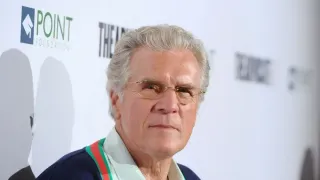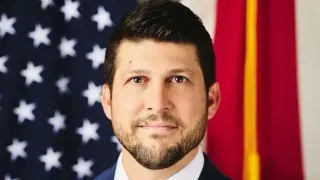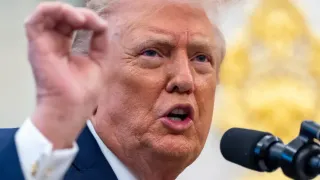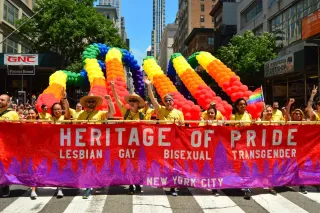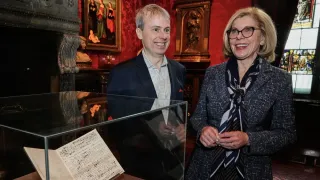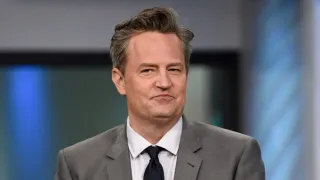October 9, 2023
'Oh, Daddy... Frank Biden?' Revealing Pic of President's Brother Turns Up on Gay Hookup Site
READ TIME: 3 MIN.
The revealing pic is real, but how it ended up on a gay hookup site is in question. That is the latest Biden family scandal to drop. "A naked selfie of Joe Biden's brother Frank has been discovered on a gay porn site," reports the Daily Mail. At 69, Frank is the youngest of the Biden brothers.
The photo shows Biden posing in a bathroom full-frontal wearing only a baseball bat. His privates are blurred in the public photo.
"The photo was uploaded to a gay porn website Guys With iPhones.com in 2018 when Frank was 64. When approached by DailyMail.com, Frank conceded he was the man in the photo but denied posting it online saying his phone must have been hacked."
The photo was discovered by the right wing nonprofit Marco Polo as part of their ongoing investigation of the Biden family for their supposed criminal activities.
Biden has been in a long-term relationship with his female partner Mindy Ward, 50-year-old Ward, a former Hooters waitress-turned-American Airlines flight attendant. They have been in a relationship since 2010.
"I've absolutely no comment. I could care less. I haven't even looked at it," Frank said Monday morning when asked about the shot at his Florida home, writes the Daily Mail. "They must have hacked my phone, Anything that is a revealing picture of some kind is between Mindy and me. I really don't want to start my day off this way. Definitely didn't post it anywhere."
He added: "What lengths will these cretins go to? Why do they care about a 70-year-old man?"
The photo such as this, the Daily Mail adds, "circulating online could raise the prospect of blackmail of the First Family – a potent national security threat. There is no evidence that any person or group has attempted to use the shot against the Biden administration."
Guys With iPhones describes itself as "Powered by a love for hot men who appreciate the finer gadgets in life', and features selfies of naked men. Privacy fine print on the site shows it is owned by 'gay porn blog' QueerClick.com." The site's metadata and photo watermark says "it was posted on May 23, 2018 – around the same time Frank's nephew Hunter Biden was also photographing himself naked at the Chateau Marmont with M&Ms lined up along his penis, pictures from the First Son's abandoned laptop reveal," writes the Daily Mail.
While most photos on the site are submitted by the users, many are not, and it may not have Biden who uploaded the selfie.
Photos are generally submitted to the website by users. Many of the photos are not submitted by the men in the pictures, and it may not have been Frank himself who submitted the revealing selfie.
"He first married Janine Jaquet, a Delaware journalist, in 1985, and divorced her in the 1990s after having one daughter. He had another daughter with Judy Rodgers, who died last year age 76. His partner Mindy has two children with her ex-husband Jonathan, whom she divorced in 2013," reports the Daily Mail.
